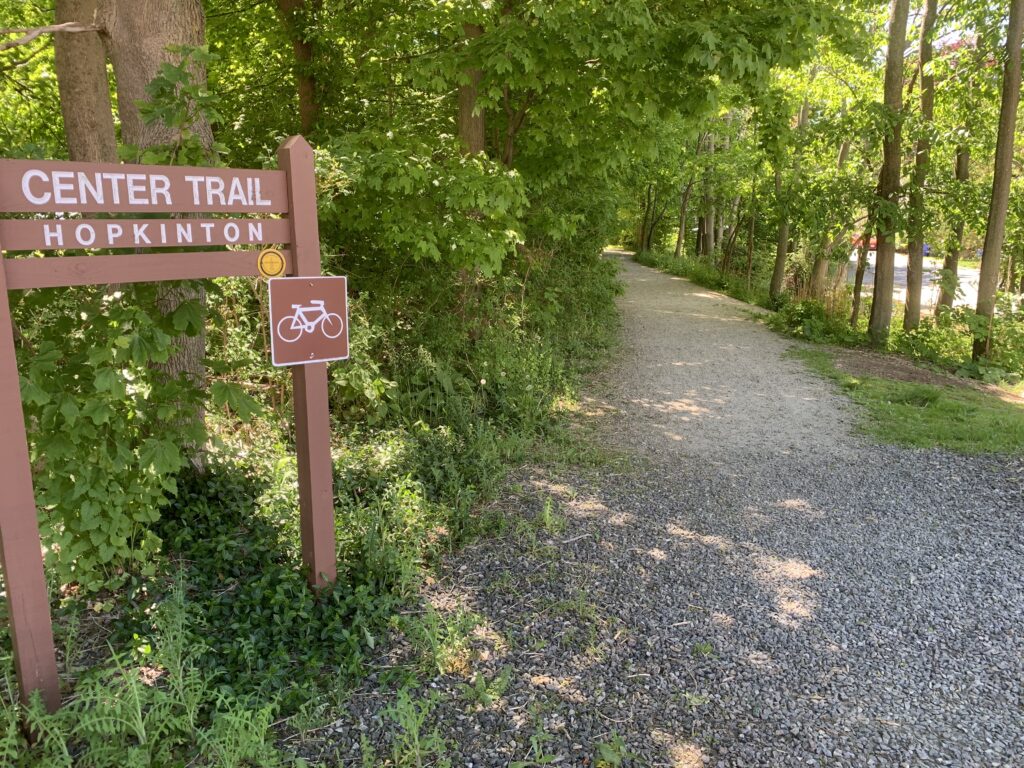
A rendering provided to the Board of Appeals by Rte 85 Realty Corp. shows the proposed layout for a country store and gas station at 290 West Main Street.
The Climate Action & Building Workgroups of the Sustainable Green Committee on Monday night talked about ways to regulate projects like the proposed gas station at 290 West Main Street in the future.
SGC chair Geoff Rowland began the discussion by reviewing the Board of Appeal’s use variance hearing for the proposed gas station and country store, which took place earlier in October.
During that meeting, Rowland gave a prepared statement from the committee during public comment. In the statement, he cited environmental concerns, increasing electric vehicle (EV) usage by Hopkinton residents and the town’s net zero goals as reasons to deny the applicant’s use variance request.
After Rowland’s recap, the workgroups discussed what next steps would be on this issue and on potential fossil fuel infrastructure projects going forward.
Rowland emphasized a need for balancing development with the town’s commitment to sustainability.
“[We’re] not going to fight every new development,” said Rowland, “That’s not worth it.”
“The goal is that any new development should be as sustainable as possible,” he added.
One idea that dominated much of the discussion was implementing a new bylaw that could block future development of gas stations and other fossil fuel projects in town.
Member Paul Gallagher expressed opposition to the idea. “I think regulating them away probably won’t work,” he said, adding that such a ban could “run the risk of alienating people.”
He advocated for alternate approaches that would “[add] a thumb gently on the scale of being fully electric” instead of outright bans.
Added Gallagher: “I think that’s a better way to regulate than to just say, ‘Stop.’ ”
SGC vice chair Amy Groves agreed with concerns about over-legislating the issue. However, she recommended that if the larger committee wanted to make a push for enacting a bylaw, the process would need to start soon.
“We only get one good shot every year to go to Town Meeting,” said Groves. “It takes a while to socialize something and get it to pass.”
Given recent moves by the state Senate to adopt a revitalized climate bill and uncertainty that the final plans for 290 West Main Street would even include a gas station, member Nicole Simpson wondered if a move to develop a bylaw was worth the larger committee’s time.
“[It’s] a lot of work for something that may or may not happen anyway,” said Simpson.
Rowland agreed, stating there was “not much for us to do at this point besides wait.”
The workgroups agreed to bring the matter for discussion at the general SGC meeting and follow up after the next Board of Appeals meeting about the gas station project on Nov. 13.





















Why even bother with public input? Developers and realtors in this town always prevail.
A bylaw that blocks future development of gas stations? What a dumb idea. What about all your Prius driving friends? Gas isn’t going away in our lifetime. Why are people so fixated on 4 gas pumps? Those pumps are what brings business to small convenience stores/ markets and the developer knows that. This town needs tax revenue badly, but everyone has a reason why it shouldn’t be generated in their back yard.
Another example of the Green Committee looking to over-regulate. This time targeting business. All with the unintended? consequences of limiting business which limits their tax input to the town which drives up costs for homeowners!
I think the point of the article to inform that SGC is against the by-law for several reasons. Idea is dumb, but SGC is putting a thought to it and rejecting…?
Adding some more context here, as I feel the usage of “crosshairs” in the title exaggerates the nature of the discussion we had. The proposed gas station is of course of interest to the SGC. What this article summarizes is an initial 10 minute brainstorming session that occurred during a subcommittee meeting that ran for 100 minutes and covered numerous other topics. We had heard that Providence recently made the decision to ban all new gas stations, and in this discussion we debated the pros/cons of such an approach. We were just bouncing around an idea. No decision has been made as to whether this is an approach the SGC will take. I think the author, Nick, did a nice job of summarizing the discussion, and the quotes make clear that the subcommittee members would want to put a lot more thought into the topic before going down the same path as Providence.